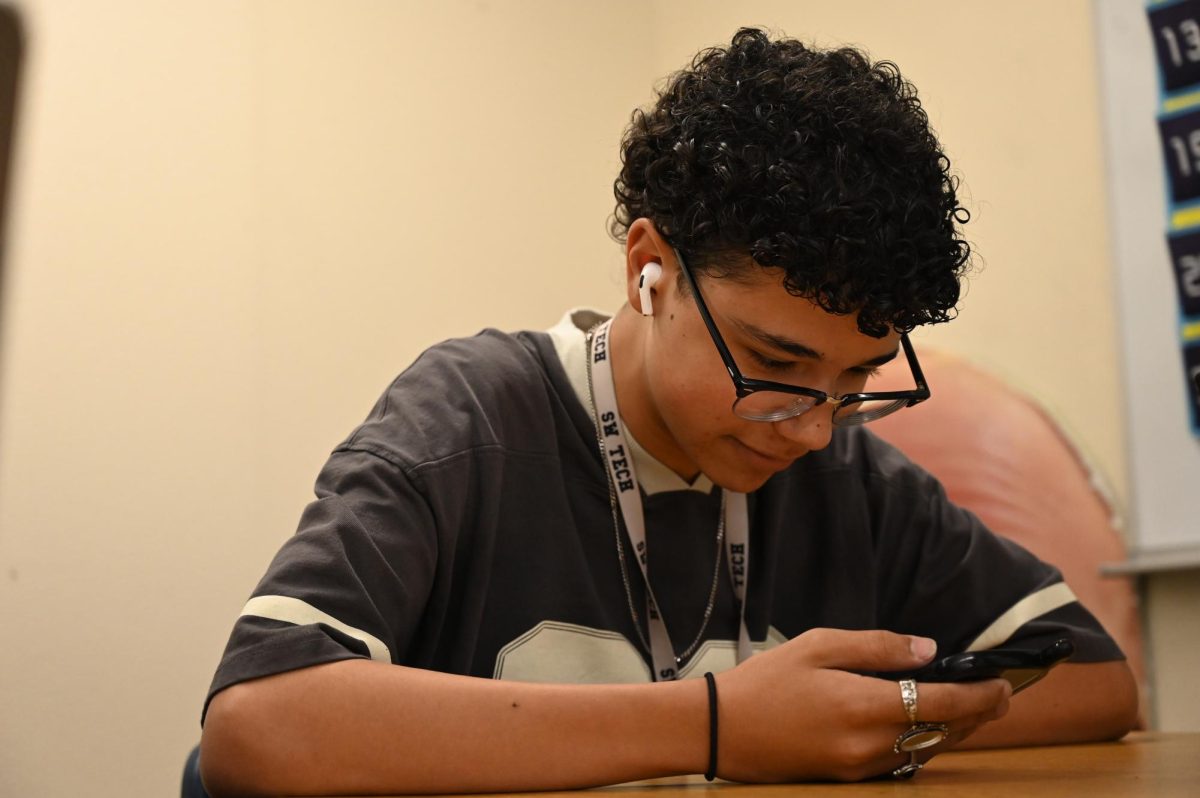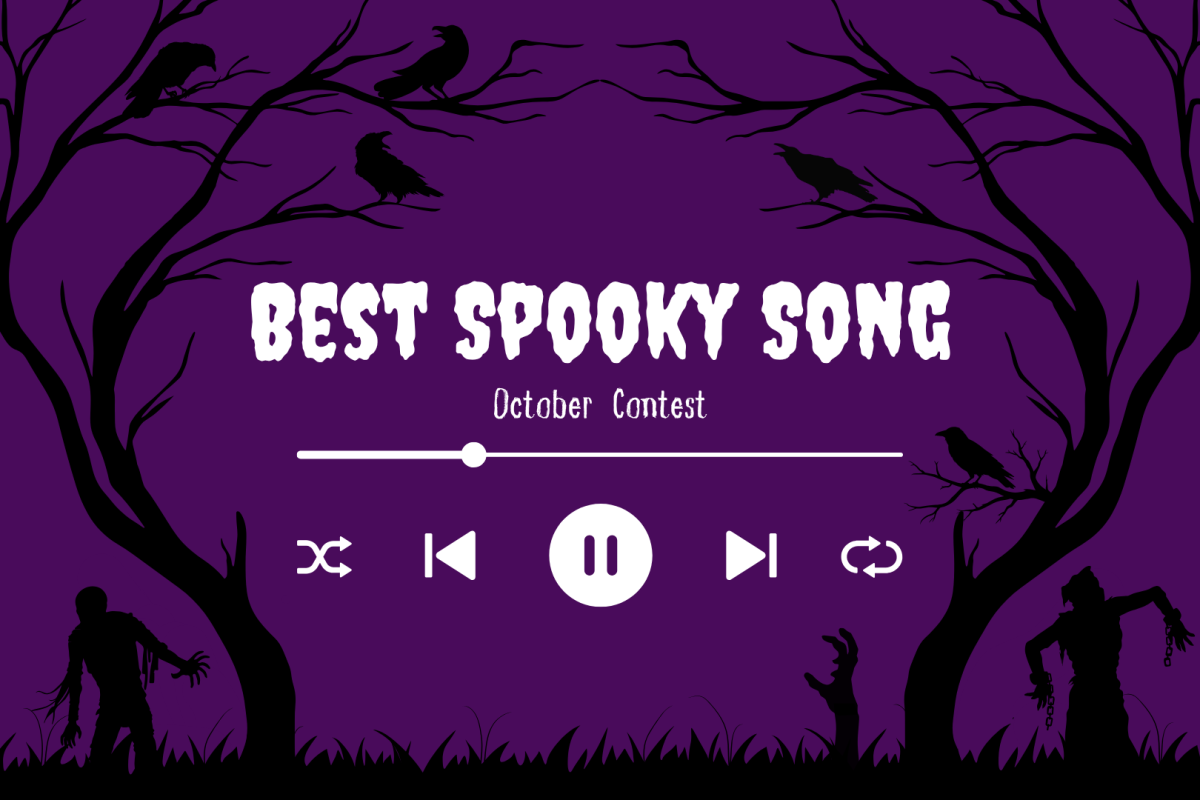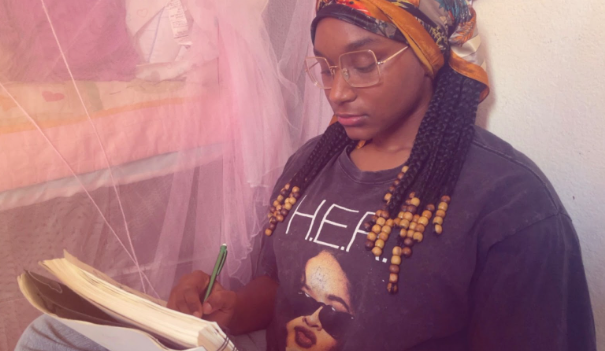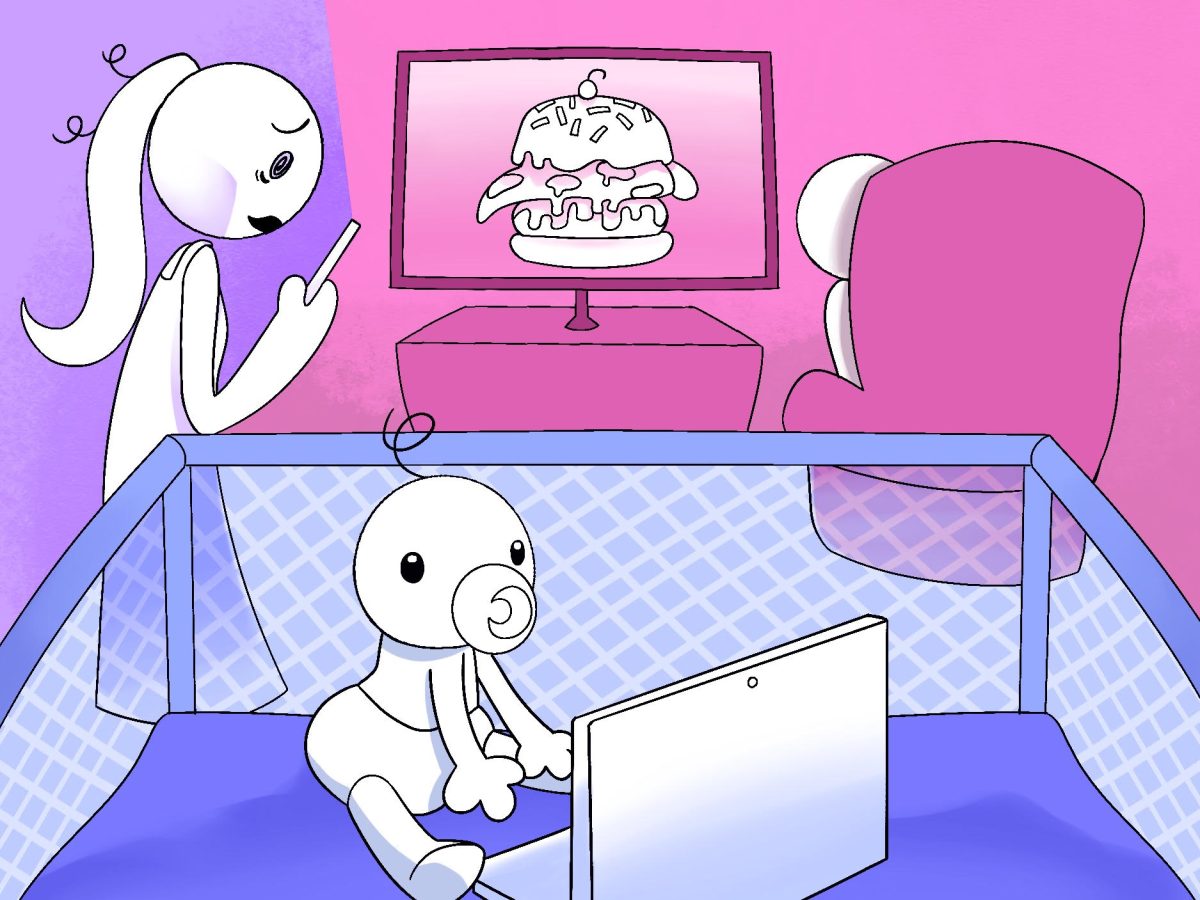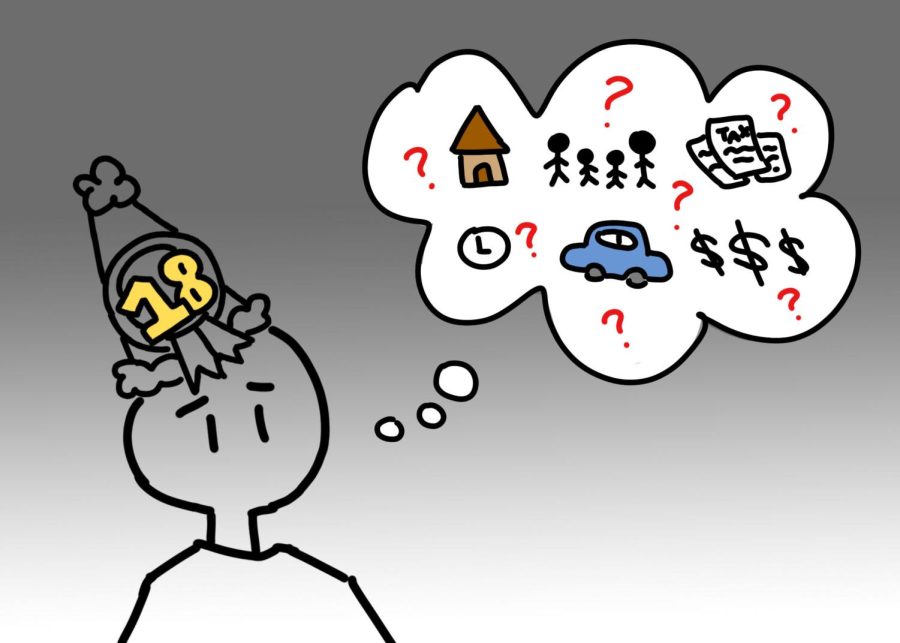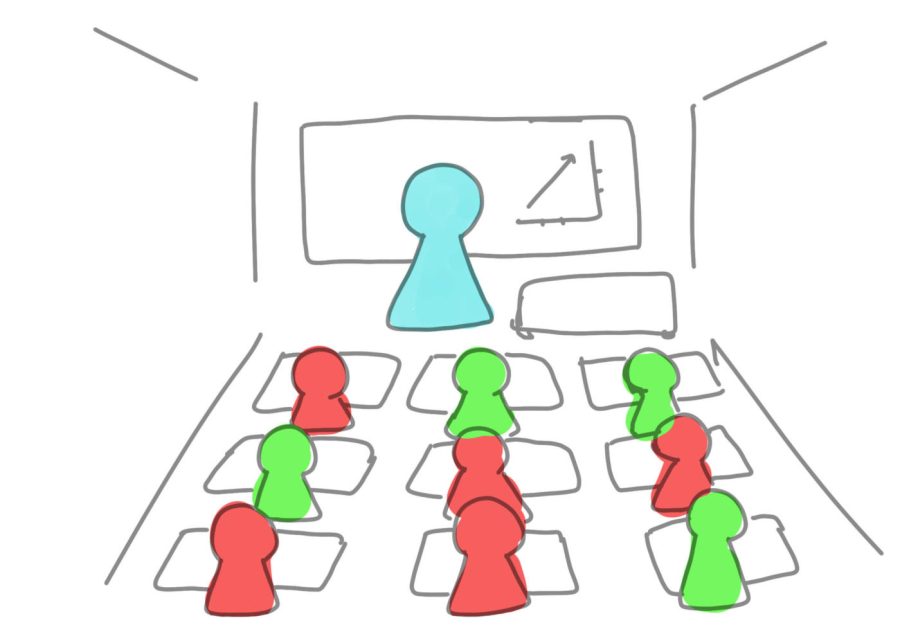The fatal attack that occurred at the Route 91 Harvest festival approximately two months ago resulted in the deaths of 58 attendees and over 500 injured, leaving family and friends to mourn over those whom they have lost.
The shooting changed the lives of many in Las Vegas–whether it is in the way they function on a daily basis or their denial to participate in community events. Fearful for the safety of their children, many parents restrict how often their kids leave home.
“Normally, I don’t let my daughter walk around on her own,” parent Zain Ariffien said. “But ever since the shooting, I won’t allow her to volunteer at the Rock ‘n’ Roll marathon or watch any concerts without me. She’s the only child I have; I don’t want to lose her unexpectedly.”
As people stayed away from The Strip, it became unusually quiet and abandoned during the week after the shooting. Many avoided for safety, but others grieved at home.
“I felt compassion towards my neighbors and friends that were affected,” junior Gabriela Hernandez said. “I don’t consider myself to be in a position to do anything but listen [to anyone who is grieving]. I think it’s important to have people there as comfort–someone you can vent to. I think being present goes deeper than words.”
Loss can make one feel numb or guilty, and these feelings don’t just apply to those affected by the shooting. Losing a loved one, dealing with divorce, enduring break-ups and accepting broken friendships lead people to follow a similar grieving process. The only difference is: how heavily these losses impact individuals and the way they cope with their situations.
Losing a loved one
When a loved one passes away, friends and family members experience grief–one of life’s hardest obstacles to overcome. The process flows through acts of denial, isolation, anger, sadness and then acceptance. Throughout it all, individuals may experience disbelief, despair and bereavement.
The best way to aid those dealing with loss is to remind grieving individuals like Chef Ruben Munoz that they are not alone. When bereavement becomes too much for an individual to handle, help from those closest to them is crucial.
Last year, Munoz lost a student who took his life before being able to graduate. Munoz, as well as others, mourn his loss, remember the good times they had together and cope with it till this day.
“Today, walking into this kitchen…. The last time I saw him, he looked happy as he does every day,” Munoz said. “Can I erase [that image] from my brain? No, because that person became a part of my life.”
Whenever Munoz sees his students sad or upset about a loss or any problems, he tries to offer support by talking to them through their situation. Munoz encourages students to share their emotions to be able to understand them on a deeper level.
“I usually try to talk to my students and ask them what kind of problems they’re having,” Munoz said. “I like to become a listener, I let them vent, I let them talk about what’s going on, they share and then a lot of the times it makes them feel better.”
Although losing a loved one can be taxing, the loss of a pet can also take a toll on an individual. Junior Shay Carnes lost her dog Lola who she considered a family member and spent time with for 11 years of her life.
“Coming home and not seeing [Lola] run up [to me] has been a big adjustment,” Carnes said.
The loss of an animal may not seem as important as that of a person, but a loss is a loss no matter who may be leaving. Carnes does everything she can to take her mind off Lola’s loss so she doesn’t have breakdowns or nightmares about her.
“Every now and then I have flashes of what I saw and dreams about it as well,” Carnes said. “My mind refused the thought of her for awhile to keep me from getting upset or seeing everything play out again in my head and I try to only think of the good moments and ignore the bad.”
Junior Yen Binh Tran believes that there are multiple ways to go about helping someone ease the weight of grief; however, one of the most effective methods is to be attentive. While doing so, a sense of security and trust is built, encouraging the latter to feel safe enough to discuss their problems.
“Sit with [the person who is grieving], let them talk or cry–just be next to them to show that they have someone to talk to,” Tran said. “[You may not] get what they are going through, and it’s fine; help them move on.”
The End of a Marriage
Although divorce is often perceived as a parental issue, it is also one that affects children of these divided families. However, there is a small percentage of children who are seriously impacted by the split of their parents. Regardless of how long a child is troubled by their parents’ divorce, the separation of their parents alters the way they live.
Junior Isaiah Bleifus’ parents divorced when he was in third grade. Despite the relief he felt in knowing that the arguing between his mom and dad would end, the split changed his life drastically. Between jumping from his mom’s house to his dad’s, the issue became too much for him to handle.
“My dad tried to convince me to move with him years ago,” Bleifus said. “The same thing goes for my mom. I was constantly trying to agree with them and not go against them. I guess I didn’t understand at the time–I feel like it was harder on my brother.”
Since the divorce happened when Bleifus was young, he didn’t think seeking help or advice was necessary. However, reaching out to others is important when coping with divorce. An effective way to do so is to talk about the troubles related to the situation.
“When you bottle up the feelings [that come from divorce], you have to talk,” Hare said. “Don’t bottle things up or else you will reach your breaking point and good things won’t happen. Find someone who will empathize with you.”
Because empathy requires one to push aside personal judgement, it can be difficult for individuals to understand how it works. Empathy calls for an open mind and the need to see matters in a different way.
Knowing how to apply empathy in a conversation requires patience and the ability to understand others easily, as Hare says from personal experience. Although it may be difficult to relate to exactly what someone else is going through, she can only imagine the harsh reality that they have to face every day.
“Regardless of whether someone experienced something [firsthand] or not, it’s important to be sensitive because you don’t know what anyone is going through–everybody internalizes it differently,” Hare said. “By saying things like, ‘You weren’t there, you don’t understand,’ you not only take away their sense of security but now they are also angry, which can cause a lot of damage [mentally and emotionally].”
When sophomore Jocelyn Miller was young, her parents divorced, which put a weight on her shoulders and lead her towards negative thoughts. However, through counseling, she received the comfort she needed as she realized that she wasn’t alone.
“I went to a counseling session at my school that other students with divorced parents went to, and I talked about how we felt and it really helped me,” Miller said. “They understood where I came from, and now I feel like I’m a better person. Life is way better since I’m used to the divorce.”
The adults who helped Miller through her problem couldn’t relate to her parents’ divorce, but they empathized and were able to make her feel better. Empathy can mix with other emotions such as disappointment and shock, but the overall point of it is to understand the thoughts and feelings of whoever is struggling.
“The number one thing to do is ask people if they are okay; let them know that you care,” Hare said.
Break-ups
Going through heartbreak can cause an individual to experience a wide range of emotions from sadness to anger to confusion. Sadness may arise because a person they once thought of fondly is no longer a part their life in the same way, leading to feelings of loneliness. One may feel angry because they’ve exhausted every last resource to keep the relationship alive.
Confusion can be felt if the individual has no clue as to why their relationship ended. In this case, it is best for that individual to express their feelings to a trusted friend or adult that can help them get through the problem.
After experiencing a recent heartbreak, junior Jared Calangi felt a range of emotions from loneliness to anger. Calangi was in a relationship with a girl who he viewed as his whole world, becoming a major part of his life. However, they severed ties leaving Calangi heartbroken.
“It’s completely absurd how a person could make you feel so hopeless and alone,” Calangi said. “The most frustrating thing about it is that you handed them that power.”
Calangi coped with his loss by expressing his emotions through a book he wrote. Within the text, he describes the relationship from start to finish. Although he initially kept his feelings hidden, he later expressed them through poetry for anybody who is willing to read.
Despite an individual experiencing heartbreak and cutting all ties with their significant other, remaining friends with them can both be a good and bad way to cope. Every relationship is different in their own way; some may have communication issues while others might have inconsistent emotions.
“Being friends right away can get messy because sometimes one person wants the break-up and the other person doesn’t,” Hare said. “There is no right or wrong; everyone has to find their own path.”
Junior Cali Javellana and her boyfriend were on and off due to his parents not approving of the relationship. Day in and day out, both Javellana and her boyfriend tried the best they could to avoid each other in every way possible.
“I had lost my best friend, the person that I went to with everything and it hurt me so much that he meant nothing to me at that point,” Javellana said.
Both individuals felt a sense of emptiness and loneliness as do others after a relationship ends; however, they ultimately decided to stay friends.
“We eventually both gave in and talked it through to see if we can make a change for the better,” Javellana said. “We’ve been working on that ever since and now we’re right back to where we started, together.”
Broken friendships
Friends come and go; it’s a part of life and emotional growth. Some friendships end over time while other scenarios cause friendships to falter because of disagreements and conflict.
Senior Alyssa Ross and her close friend had a feud that tore them apart for a while. Through harsh words and misunderstanding, the tension eventually caused their friendship to snap and they parted ways.
“It felt like a real break-up, but with your dear friend instead,” Ross said. “It made me very upset and angry, and then hurt, and then angry again.”
Still, after all the anger and madness, Ross did miss her friend. She wanted to start their mornings together again, send funny texts to each other and laugh in the car until they cry. However, she couldn’t do that anymore.
Going to school and knowing that her friend would be there was one of the challenges Ross had to face. They passed by each other in the hallways, pretending as if they were strangers when in reality they knew more than the average friend could understand.
Frustrated, Ross would cry out her emotions because she didn’t know how to cope with losing her friend. Once she realized that bottling up her thoughts became unhealthy, she turned to her mom and a trusted friend to talk things out.
“They [said] I can’t beat myself up over things that I can’t control and I need to acknowledge that I did my part as a friend by communicating to fix the problem,” Ross said.
After trying to make amends with her friend and failing, Ross proceeded by waiting for the latter to make the next move. She decided that if her friend didn’t want to talk to her about the problem, they didn’t have to be in her life.
Eventually, Ross’ friend apologized and they came up with solutions together to avoid the same problem in the future; now they’re back to the way they were.
Hare’s solutions to heal broken friendships goes about the same as the way Ross handled her situation–talk it out and be patient. Neglecting these key points in trying to mend ties with others can lead nowhere.
“When you are starting to feel like you can’t handle these problems or need to talk, let a trusted person know,” Hare said. “Don’t wait until you reach your breaking point where you can’t handle it anymore. [People] can’t help if you don’t let [them] know.”
The healing process
The seemingly long process of bereavement is one that a person goes through alone, but that burden can be lessened through the presence of someone who will wholeheartedly stand by their side.
The grieving process is limitless as Hare explains it in her own methods. According to her, the amount of time it takes individuals to grieve depends on numerous factors: personality, lifestyle and how significant the loss was.
“A lot of times, people think there is a time stamp to [grieving] like, ‘Oh, it’s been two weeks,’ or, ‘A few months have passed, get over it,’ and that’s not true,” Hare said. “People are never going to be the same after the loss of someone, and they need to deal with that in their own way.”
Escapism is a major factor of the grieving process, and it’s an idea that people intentionally ignore the presence of their problems. Although it is okay to sometimes walk away from reality to take a breather, disregarding the issue may be detrimental to one’s healing.
Senior Samantha Fernandez relies on escapism when she grieves to help her cope with the loss of her friend. She, like others who grieve, isolates herself, not wanting to burden those around her. Despite not talking to many people about her recent loss, cooking, listening to music and working out has made the grieving process easier for Fernandez. She also recommends reading books and hanging out with friends as a way to distract oneself from problems.
“Don’t be afraid to express how you feel,” Fernandez said. “Venting is healthy and common. Just because you aren’t happy and need someone to lean on doesn’t make you weak–it just makes you human.”
Although Fernandez might still feel a little pang in her heart when she thinks of her friend that she lost to a suicide, she knows that the pain will end eventually. By accepting others’ support, she has learned how to let go. She takes this as an opportunity to find peace.
“When you’re starting to feel like you can’t handle the problems on your own or you need to talk, let [your counselors] know,” Hare said. “Don’t wait until the breaking point–until you can’t handle it anymore; we want to help but we can’t help if you don’t let us know.”
Even after several weeks, the Las Vegas community struggles to find peace with the memories of the tragedy at Route 91. While some have overcame the incident and are moving on, others are still dealing with the mental toll.
However, regardless of the event, time heals emotional wounds in the end. Some occasions may be more intense than others, but an important step in healing is realizing that the pain does not define you.
“You would think that if I saw this happening I would be scared to go outside or have a fear of public places, but life goes on,” Tran said. “You can’t live in fear your whole life or you won’t be living.”


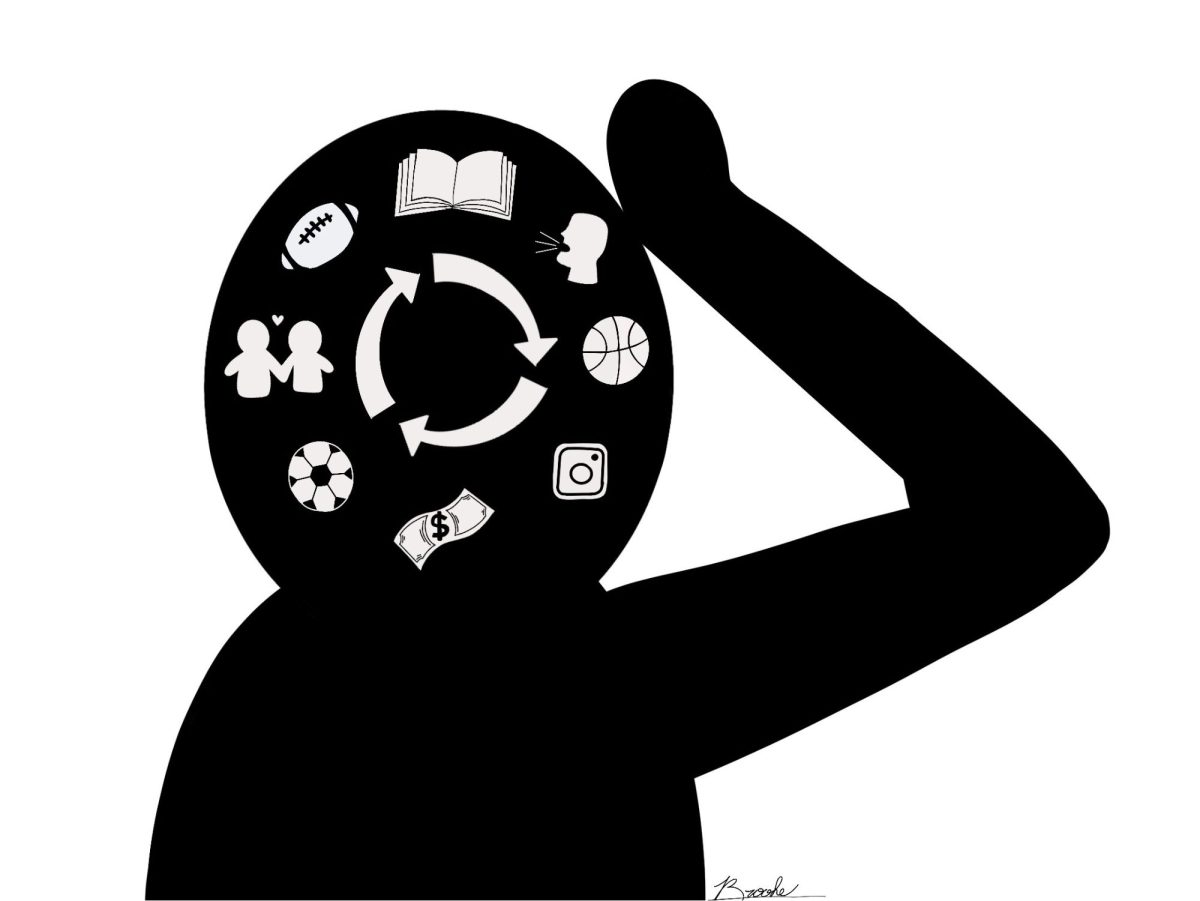
![Displaying a QR code for students to scan, the flyer allows students to sign up and learn about their desired colleges as they visit throughout the school year. Many schools have had additional presentations for students to learn more about what they offer. “For me, I’m interested in criminal justice,” junior Zion Jefferson said. “I know that UNLV and Nevada State University have this major. But, [the college fair] is going to be beneficial, so I can see what other schools offer as well.”](https://southwestshadow.com/wp-content/uploads/2025/10/IMG_2721-1200x900.jpg)

![Fast food has not stayed the same principle of “sit down, order, and get food,” but has turned into a process with multiple layers and complexity. This is largely due to the integration of automation in every aspect of dining. “I'm not that knowledgeable on it, but I've seen videos on TikTok, I'm not really concerned—it doesn’t seem that smart,” senior Dallas Evertt said. “When [some people are just ordering] 18,000 water cups, it sounds really dumb. There was no way [the AI] was gonna put down 18,000 water cups—and that just shows how it’s not going to take anybody’s job soon.”](https://southwestshadow.com/wp-content/uploads/2025/10/Dominante-Image-1200x675.png)

![Squaring up to a practice dummy, sophomore Cypher Andres prepares to throw a punch. Dummies are regularly used to help him prepare certain hits to take his opponents down. “[Boxing dummies help me practice] because it’s basically a model of the body,” Andres said. “It helps with accuracy, such as pressure points behind the ear, and a clean liver shot can end the fight.”](https://southwestshadow.com/wp-content/uploads/2025/10/IMG_5728-e1759850486200-1200x864.jpg)
![Swaying and preparing to toss the tennis ball, Dylan Grove practices serving. Grove had been training in preparation for her upcoming matches against Chaparral and Doral Red Rock. “[Both teams are] both very tough opponents, but I am ready for whatever gets thrown my way,” Grove said.](https://southwestshadow.com/wp-content/uploads/2025/10/image-1200x900.png)

